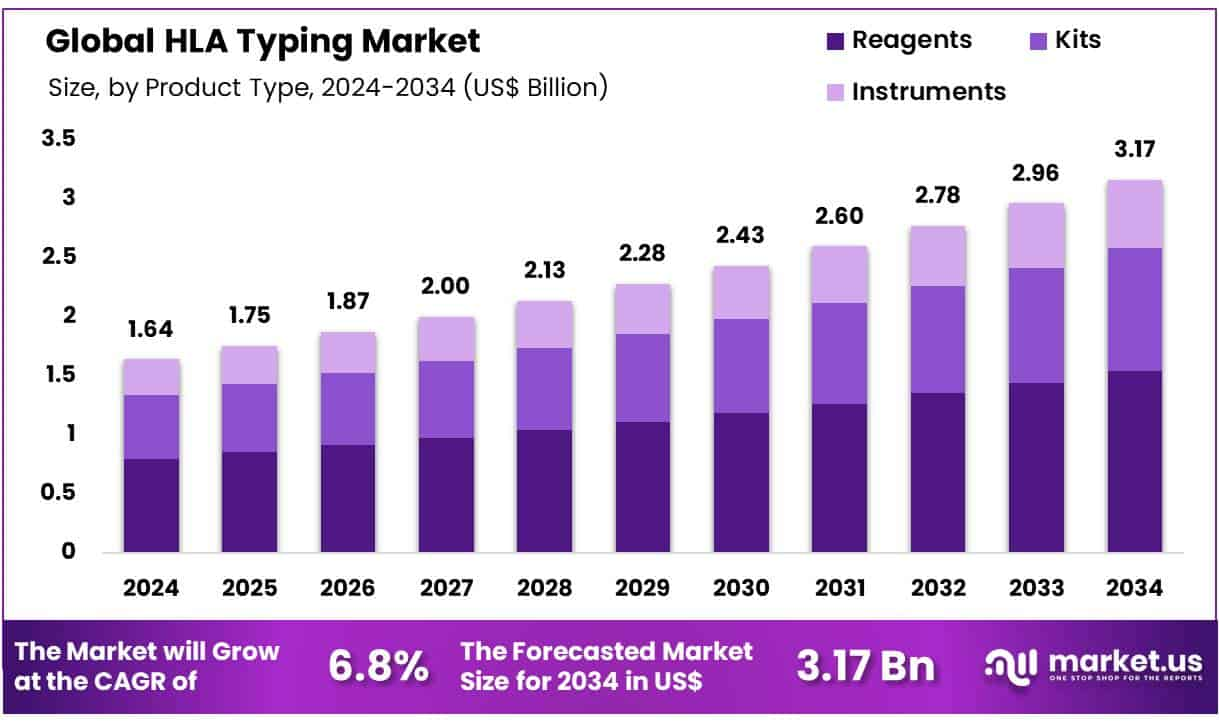NGS Technology Unlocks New Growth Opportunities in HLA Typing Market

The HLA Typing Market is witnessing rapid transformation with the integration of Next-Generation Sequencing (NGS) technology. In 2024, the market was valued at US$ 1.64 billion and is projected to reach US$ 3.17 billion by 2034, growing at a CAGR of 6.8%. North America currently leads the global market with a 39.8% share. The adoption of NGS methods in HLA typing brings enhanced accuracy and efficiency compared to traditional PCR-based techniques, supporting advanced diagnostics and transplant compatibility assessments.
NGS offers high-throughput sequencing, better accuracy, and the ability to detect rare alleles. These benefits make it ideal for complex transplant procedures, such as bone marrow or stem cell transplants. By enabling the sequencing of multiple immune-related genes with precision, NGS improves compatibility assessments. It also reduces the risk of rejection, making transplants safer and more successful. These capabilities present a major opportunity for market growth in clinical and research applications.
Roche made a notable breakthrough in February 2025 with the launch of its proprietary “sequencing by expansion” (SBX) platform. This system pairs new SBX chemistry with a high-speed sensor module to offer fast, scalable sequencing across diverse applications. The technology aims to simplify workflows, cut turnaround times, and enable broader NGS adoption in clinical settings. It represents a key advancement in delivering accurate and timely HLA typing results for critical transplant decisions.
In October 2024, Illumina, Inc. also contributed to the market shift with its MiSeq™ i100 Series sequencing systems. These new benchtop platforms are designed for speed, ease of use, and affordability. Their launch supports increased accessibility of NGS to smaller labs and institutions. The systems help streamline testing, reduce manual steps, and improve workflow efficiency in routine HLA typing, thereby expanding the potential user base in both research and clinical environments.
As NGS becomes more cost-effective and widely available, its role in HLA typing will continue to expand. It offers a full view of the exonic regions of HLA genes, enhancing accuracy and reliability. These improvements not only benefit transplant medicine but also extend to areas like immunotherapy and disease diagnostics. The growing demand for personalized medicine further boosts the need for advanced HLA typing solutions, positioning NGS technology as a major driver of future market growth.
- Art
- Causes
- Crafts
- Dance
- Drinks
- Film
- Fitness
- Food
- Juegos
- Gardening
- Health
- Inicio
- Literature
- Music
- Networking
- Otro
- Party
- Religion
- Shopping
- Sports
- Theater
- Wellness


